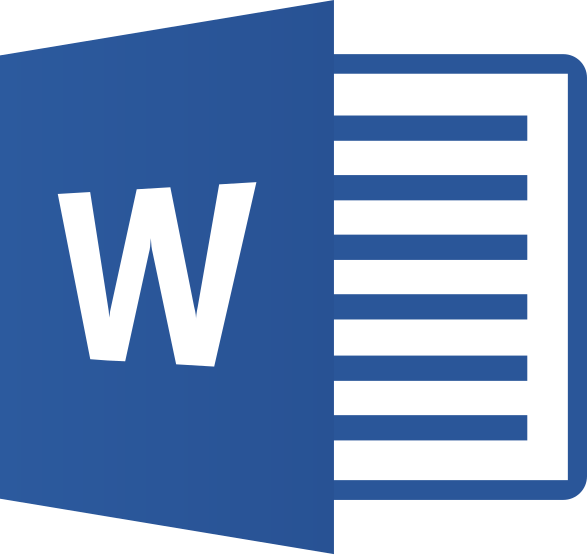Freedom Of Thought For Madrasah Ibtidaiyah Teachers In The Era Of Independent Curriculum
DOI:
https://doi.org/10.24269/ijpi.v8i2.8100Abstract
The independent curriculum is a post-pandemic curriculum dream where the learning crisis is a multidimensional problem that cannot be solved by curriculum changes alone. The learning crisis can only be overcome by systemic changes. And that is what the Ministry of Education and Culture is now doing through a series of Merdeka Belajar policies in the independent curriculum. It has several principles, one of which was flexibility. This means that the school can implement this curriculum based on the environment. But this curriculum was very new when implemented by the teacher. The purpose of this study is to conceptually describe the Merdeka curriculum which is gradually implemented in MI Unggulan Nuris in grades 1 and 4 and will be implemented nationally in 2024. Descriptive qualitative research method of field research type is used as a research method. Data collection is done by interview, observation, and documentation methods. Data analysis used data reduction, data presentation, and conclusion drawing. Based on the research results, this curriculum can be applied in various fields. One teacher who prepared the independent curriculum attended training on curriculum for educational institutions. Based on interviews with teachers at Nuris Jember's madrasah ibtidaiyah, they responded enthusiastically to this curriculum although there are still shortcomings in its application. We hope that this implemented curriculum can achieve the goals in education in Indonesia.
References
Alawi, D., Sumpena, A., Supiana, S., & Zaqiah, Q. Y. (2022). Implementasi Kurikulum Merdeka Belajar Kampus Merdeka Pasca Pandemi Covid-19. Edukatif : Jurnal Ilmu Pendidikan, 4(4), 5863-5873. https://doi.org/10.31004/edukatif.v4i4.3531
Alimuddin, J. (2023). Implementasi Kurikulum Merdeka Di Sekolah Dasar Implementation of Kurikulum Merdeka in Elementary Scholl. Jurnal Ilmiah KONTEKSTUAL, 4(02), 67-75.
Arifin, S., Abidin, N., & Anshori, F. A. (2021). Kebijakan Merdeka Belajar dan Implikasinya terhadap Pengembangan Desain Evaluasi Pembelajaran Pendidikan Agama Islam. Dirasat: Jurnal Manajemen Dan Pendidikan Islam, 7(1), Article 1. https://doi.org/10.26594/dirasat.v7i1.2394
Arifin, S., wJ, S., Prayitno, H., & Waston, W. (2023). Improving The Professional Teacher Competence Through Clinical Supervision Based on Multicultural Values in Pesantren. Nazhruna: Jurnal Pendidikan Islam, 6, 386-402. https://doi.org/10.31538/nzh.v6i3.4037
Arisanti, D. A. K. (2022). Analisis Kurikulum Merdeka Dan Platform Merdeka Belajar Untuk Mewujudkan Pendidikan Yang Berkualitas. Jurnal Penjaminan Mutu, 8(02), 243-250. https://doi.org/10.25078/jpm.v8i02.1386
Arviansyah, M. R., & Shagena, A. (2022). Efektivitas Dan Peran Dari Guru Dalam Kurikulum Merdeka Belajar. Lentera, 17(1), 40-50.
Asadullah, M. N., & Maliki. (2018). Madrasah for girls and private school for boys? The determinants of school type choice in rural and urban Indonesia. International Journal of Educational Development, 62(2020), 96-111. https://doi.org/10.1016/j.ijedudev.2018.02.006
Barlian, U. (Univeristas I. N. (2022). IMPLEMENTASI KURIKULUM MERDEKA DALAM MENINGKATKAN MUTU PENDIDIKAN. Journal of Educational and Language Research, 10(1), 1-52. https://doi.org/10.21608/pshj.2022.250026
Daga, A. T. (2021). Makna Merdeka Belajar dan Penguatan Peran Guru di Sekolah Dasar. Jurnal Educatio FKIP UNMA, 7(3), 1075-1090. https://doi.org/10.31949/educatio.v7i3.1279
Fitriyah, C. Z., & Wardani, R. P. (2022). Paradigma Kurikulum Merdeka Bagi Guru Sekolah Dasar. Scholaria: Jurnal Pendidikan Dan Kebudayaan, 12(3), 236-243. https://doi.org/10.24246/j.js.2022.v12.i3.p236-243
HR, S., & Wakia, N. (2021). Problematika Implementasi Kurikulum Merdeka Belajar di Perguruan Tinggi. Jurnal Manajemen Pendidikan Islam, 11(2), 175-184.
Jannah, M. M., & Rasyid, H. (2023). Kurikulum Merdeka: Persepsi Guru Pendidikan Anak Usia Dini. Jurnal Obsesi : Jurnal Pendidikan Anak Usia Dini, 7(1), 197-210. https://doi.org/10.31004/obsesi.v7i1.3800
Malikah, S., Winarti, W., Ayuningsih, F., Nugroho, M. R., Sumardi, S., & Murtiyasa, B. (2022). Manajemen Pembelajaran Matematika pada Kurikulum Merdeka. Edukatif : Jurnal Ilmu Pendidikan, 4(4), 5912-5918. https://doi.org/10.31004/edukatif.v4i4.3549
Marisa, M. (2021). Inovasi Kurikulum Merdeka Belajar di Era Society 5.0. Santhet: (Jurnal Sejarah, Pendidikan Dan Humaniora), 5(1), 72. https://doi.org/10.36526/js.v3i2.e-ISSN
Rahayu, R., Rosita, R., Rahayuningsih, Y. S., Hernawan, A. H., & Prihantini, P. (2022). Implementasi Kurikulum Merdeka Belajar di Sekolah Penggerak. Jurnal Basicedu, 6(4), 6313-6319. https://doi.org/10.31004/basicedu.v6i4.3237
Rahmadayanti, D., & Hartoyo, A. (2022). Potret Kurikulum Merdeka, Wujud Merdeka Belajar di Sekolah Dasar. Jurnal Basicedu, 6(4), 7174-7187. https://doi.org/10.31004/basicedu.v6i4.3431
Suryani, N., Muspawi, M., & Aprillitzavivayarti, A. (2023). Implementasi Kurikulum Merdeka Belajar di Sekolah Penggerak. Jurnal Ilmiah Universitas Batanghari Jambi, 23(1), 773. https://doi.org/10.33087/jiubj.v23i1.3291
Vhalery, R., Setyastanto, A. M., & Leksono, A. W. (2022). Kurikulum Merdeka Belajar Kampus Merdeka: Sebuah Kajian Literatur. Research and Development Journal of Education, 8(1), 185. https://doi.org/10.30998/rdje.v8i1.11718
Windayanti, Mihrab Afnanda, Ria Agustina, Emanuel B S Kase, Muh Safar, & Sabil Mokodenseho. (2023). Problematika Guru Dalam Menerapkan Kurikulum Merdeka. Journal on Education, 6(1), 2056-2063.
Yulianti, M., Anggraini, D. L., Nurfaizah, S., & Pandiangan, A. P. B. (2022). Peran Guru Dalam Mengembangan Kurikulum Merdeka. Jurnal Ilmu Pendidikan Dan Sosial (JIPSI), 1(3), 290-298.
Zahir, A., Nasser, R., Supriadi, S., & Jusrianto, J. (2022). Implementasi kurikulum merdeka jenjang SD kabupaten luwu timur. Jurnal Ilmu Pengetahuan Dan Teknologi Bagi Masyarakat, 2(2), 1-8.
Downloads
Published
Issue
Section
License
Copyright (c) 2023 Zulfia Al Qorina, Moh Sutomo, Erma Fatmawati, Atiq Yufitriyah Uswah

This work is licensed under a Creative Commons Attribution-ShareAlike 4.0 International License.
Authors who publish with Istawa agree to the following terms:
Authors retain copyright and grant the ISTAWA: Jurnal Pendidikan Islam right of first publication with the work simultaneously licensed under a Creative Commons Attribution-ShareAlike 4.0 International License (CC BY-SA 4.0) that allows others to share (copy and redistribute the material in any medium or format) and adapt (remix, transform, and build upon the material) the work for any purpose, even commercially with an acknowledgement of the work's authorship and initial publication in ISTAWA: Jurnal Pendidikan Islam.
Authors are able to enter into separate, additional contractual arrangements for the non-exclusive distribution of the journal's published version of the work (e.g., post it to an institutional repository or publish it in a book), with an acknowledgement of its initial publication in ISTAWA: Jurnal Pendidikan Islam.
Authors are permitted and encouraged to post their work online (e.g., in institutional repositories or on their website) prior to and during the submission process, as it can lead to productive exchanges, as well as earlier and greater citation of published work (See The Effect of Open Access).
This work is licensed under a Creative Commons Attribution-ShareAlike 4.0 International License.






